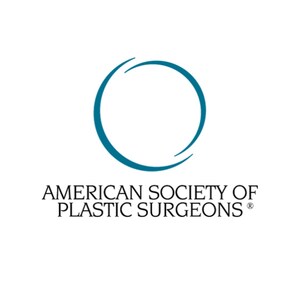ARLINGTON HEIGHTS, Ill., Aug. 6, 2018 /PRNewswire/ -- Gluteal fat grafting, more commonly referred to as the popular Brazilian Butt Lift (BBL) procedure, has resulted in an alarming rate of mortality, estimated to be as high as 1:3,000, a rate of death far greater than any other cosmetic surgery.
In response to these unusually high figures, the American Society of Plastic Surgeons (ASPS), the American Society for Aesthetic Plastic Surgery, International Society of Aesthetic Plastic Surgery, International Society of Plastic Regenerative Surgeons and the International Federation for Adipose Therapeutics and Science, formed the Task Force for Safety in Gluteal Fat Grafting with the goal of conducting studies to develop specific safety guidelines. The task force, which represents plastic surgeons worldwide who are board-certified by the American Board of Plastic Surgery (ABPS), issued an advisory to surgeons this week, urging discussion of these risks with patients and providing additional recommendations for the safe performance of the procedure.
"Patient safety is the highest priority for board certified plastic surgeons and this multi-society task force is an important an unprecedented collaboration," explains Dr. Jeffrey E. Janis, President of ASPS. "The task force is concerned with the high mortality rate of this operation and is aggressively investigating ways to make this procedure safer. This new warning emphasizes the continued risk that is being encountered with this procedure."
According to statistics from the ASPS, in 2017, approximately 20,300 buttock augmentation procedures using fat grafting were performed, and the number of procedures has more than doubled in the last five years. Complications from the surgery are likely a result of numerous factors, including the technically challenging nature of the surgery and that the rise in interest has caused more non-board-certified and non-plastic surgeons to perform the operation.
"With any cosmetic procedure, patients should seek out board-certified plastic surgeons who have the necessary training to perform these procedures," said Dr. Janis. "Patient safety is always our top concern, so we encourage all surgeons and potential patients to talk in-depth about the significant risks associated with gluteal fat grafting before considering a BBL," he advises.
As the Task Force continues to study Brazilian Butt Lifts, ASPS also established the General Registry of Autologous Fat Transfer (GRAFT) in 2015 to record and analyze fat grafting specifically for aesthetic and reconstructive surgical procedures; and are currently compiling and reviewing information gathered as a part of that effort to help shed further light on this issue. The Task Force continues to review and share additional information on this topic to ensure that ABPS board-certified plastic surgeons and patients are up-to-date on the latest statistics and practices and can make informed decisions with patient safety as the goal. While Brazilian Butt Lifts are being studied, any patient who is still considering the procedure should consult with a board-certified plastic surgeon.
About ASPS
The American Society of Plastic Surgeons (ASPS) is the world's largest organization of board-certified plastic surgeons. Representing more than 7,000 Member Surgeons, the Society is recognized as a leading authority and information source on aesthetic and reconstructive plastic surgery. ASPS comprises more than 94 percent of all board-certified plastic surgeons in the United States. Founded in 1931, the Society represents physicians certified by The American Board of Plastic Surgery or The Royal College of Physicians and Surgeons of Canada. ASPS advances quality care to plastic surgery patients by encouraging high standards of training, ethics, physician practice and research in plastic surgery.
About the Multi-Society Task Force for Safety in Gluteal Fat Grafting
The Multi-Society Gluteal Fat Grafting Task Force represents leading clinical plastic surgery societies, including the American Society of Plastic Surgeons (ASPS), the American Society for Aesthetic Plastic Surgery (ASAPS), and the International Society of Aesthetic Plastic Surgeons (ISAPS). Additionally, two scientific societies, the International Society of Plastic & Regenerative Surgeons (ISPRES) and the International Federation for Adipose Therapeutics and Science (IFATS) are represented and provide scientific support. The efforts of the Task Force build upon a foundation of important work by the Aesthetic Surgery Education and Research Foundation (ASERF), the American Society of Plastic Surgeons (ASPS) Regenerative Medicine Committee, and the International Society of Aesthetic Plastic Surgery (ISAPS) Patient Safety Committee. The Task Force is an unprecedented collaborative effort to address a major patient safety concern, investigate factors that lead to increased risk with gluteal fat grafting, perform scientific studies to improve safety and educate plastic surgeons.
SOURCE American Society of Plastic Surgeons
Related Links
WANT YOUR COMPANY'S NEWS FEATURED ON PRNEWSWIRE.COM?
Newsrooms &
Influencers
Digital Media
Outlets
Journalists
Opted In





Share this article